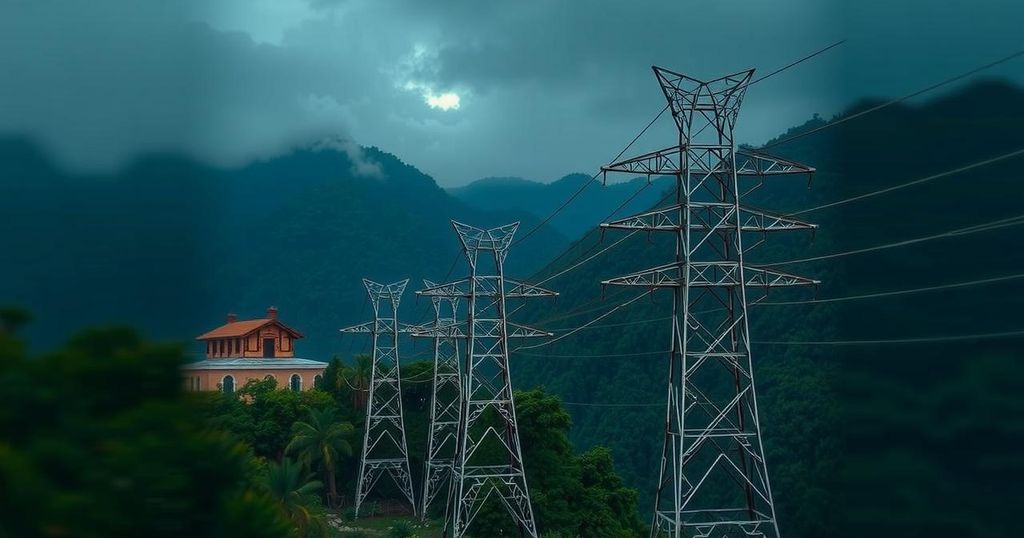Ecuador Faces Energy Crisis Amid Power Outages and Climate Challenges

Ecuador has endured severe power outages for over a month, causing disruptions and increased costs for citizens. The crisis stems from drought affecting hydroelectric generation, compounded by alleged governmental mismanagement and corruption. President Noboa’s administration attempts to address the situation through emergency measures while accusations of past negligence linger.
Since mid-September 2024, Ecuador has been grappling with severe power outages extending up to 14 hours per day nationwide. This crisis directly impacts the daily lives of approximately 17 million citizens, who face numerous difficulties such as traffic disruptions and increased costs due to damaged appliances. Reports indicate that the energy crisis is attributed to drought conditions undermining hydroelectric production, leaving a significant gap in electricity supply as national grid systems falter. President Daniel Noboa, who won the elections shortly before this energy crisis escalated, initially blamed his predecessor’s administration for poor management of the energy sector. However, leaked communications reveal that he was made aware of the looming crisis due to anticipated drought effects as early as April 2024. In response to the escalating outage situation, the government announced sectorized rationing, with electricity cuts shifting from eight hours to the current 14-hour lengths. The government’s explanation for the blackouts largely listed extreme droughts as the primary culprit, which some experts dispute by suggesting that diversification into alternative energy sources could mitigate such crises. Despite acknowledging these challenges, President Noboa pointed fingers at previous administrations for inadequate investment in energy infrastructure. New plans to address the energy gap include contracts for a floating power plant, although this has raised questions regarding transparency and efficacy against the backdrop of ongoing corruption allegations. While the crisis continues, citizens express their dissatisfaction through social media, highlighting unfair impacts on their finances and livelihoods. The ongoing blackouts jeopardize education for children, cripple small businesses, and have pushed many Ecuadorians into financial precarity.
Ecuador’s energy crisis is shaped by a combination of climatic challenges and historical management failures in the sector. The country predominantly relies on hydroelectric power, which has been severely compromised due to an unprecedented drought, deemed the worst in sixty years. The blackouts jeopardize essential daily life activities, worsen public safety conditions, and increase economic burdens on households. The fundamental role of electricity as a public service, legally mandated by Ecuador’s constitution, raises the stakes of the government’s obligation to provide reliable energy amid complaints and chaos.
In conclusion, Ecuador faces an acute energy crisis characterized by prolonged outages impacting everyday life and the economy. The government’s responses, citing droughts and historical negligence, reveal deep-rooted issues within the energy sector’s management. Public confidence is undermined further by corruption allegations tied to emergency contracts for power solutions. The future hinges on strategic investments and the urgent need for a diversified energy portfolio, alongside transparent management practices to restore public trust and stability.
Original Source: globalvoices.org






